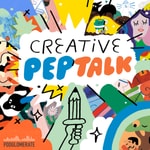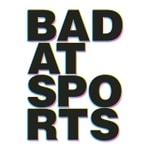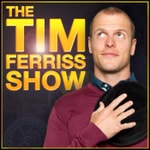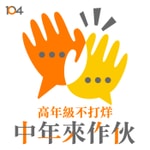Research in Action | A podcast for faculty & higher education professionals on research design, methods, productivity & more – Details, episodes & analysis
Podcast details
Technical and general information from the podcast's RSS feed.
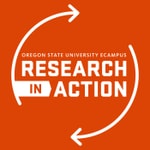
Research in Action | A podcast for faculty & higher education professionals on research design, methods, productivity & more
Dr. Katie Linder, Director of the Oregon State University Ecampus Research Unit
Frequency: 1 episode/4d. Total Eps: 413

Recent rankings
Latest chart positions across Apple Podcasts and Spotify rankings.
Apple Podcasts
🇨🇦 Canada - howTo
25/07/2025#80🇨🇦 Canada - howTo
09/07/2025#81🇬🇧 Great Britain - howTo
09/07/2025#87🇨🇦 Canada - howTo
08/07/2025#59🇬🇧 Great Britain - howTo
08/07/2025#72🇨🇦 Canada - howTo
07/07/2025#30🇬🇧 Great Britain - howTo
07/07/2025#30🇫🇷 France - howTo
30/06/2025#90🇫🇷 France - howTo
29/06/2025#77🇬🇧 Great Britain - howTo
28/06/2025#74
Spotify
No recent rankings available
Shared links between episodes and podcasts
Links found in episode descriptions and other podcasts that share them.
See all- https://www.canva.com/
1022 shares
- https://asana.com/
497 shares
- https://trello.com/
492 shares
- https://twitter.com/RIA_podcast
408 shares
- https://twitter.com/?lang=en
148 shares
RSS feed quality and score
Technical evaluation of the podcast's RSS feed quality and structure.
See allScore global : 42%
Publication history
Monthly episode publishing history over the past years.
[From the Archives] Ep 169: Dr. Helen Kara on Research Ethics
lundi 21 décembre 2020 • Duration 35:49
On this episode, Katie is joined by Dr. Helen Kara, Director of We Research It Ltd, who has been an independent researcher since 1999 and writes and teaches on research methods. She is the author of Creative Research Methods in the Social Sciences: A Practical Guide (Policy Press, 2015). She is not, and never has been, an academic, though she has learned to speak the language. In 2015, Helen was the first fully independent researcher to be conferred as a Fellow of the Academy of Social Sciences. She is also a Visiting Fellow at the UK’s National Centre for Research Methods. Her latest book is Research Ethics in the Real World: Euro-Western and Indigenous Perspectives (Policy Press, 2018).
Segment 1: Research Ethics [00:00-20:58]
In this first segment, Helen shares about her recent book on research ethics.
In this segment, the following resources are mentioned:
- We Research It Ltd
- Kara, H. (2015). Creative research methods in the social sciences: A practical guide. Bristol, UK: Policy Press.
- Kara, H. (2018). Research ethics in the real world: Euro-Western and indigenous perspectives. Bristol, UK: Policy Press.
Segment 2: Researching Independently [20:59-35:31]
In segment two, Helen shares about her experience being a long-term independent researcher.
In this segment, the following resources are mentioned:
To share feedback about this podcast episode, ask questions that could be featured in a future episode, or to share research-related resources, post a comment below or contact the “Research in Action” podcast:
Twitter: @RIA_podcast or #RIA_podcast
Email: [email protected]
Voicemail: 541-737-1111
If you listen to the podcast via iTunes, please consider leaving us a review.
The views expressed by guests on the Research in Action podcast do not necessarily represent the views of Oregon State University Ecampus or Oregon State University.
[From the Archives] Ep 122: Dr. Rebekah Willson on Grounded Theory
lundi 7 décembre 2020 • Duration 37:15
On this episode, Katie is Joined by Dr. Rebekah Willson, a Lecturer in Information Science in the Department of Computer and Information Sciences, University of Strathclyde, Glasgow, UK. Originally from Canada, she obtained her PhD from Charles Sturt University in Australia in 2016. Her dissertation focused on the experience of individuals transitioning from doctoral student to early career academic. Her main area of research is in information behavior including what information individuals need and how they find, share, and use that information — particularly in the workplace. Her latest research examines the precarity in modern universities and the influence that has on the information behaviour of academics on short-term contracts. For more information and her CV, please go to rebekahwillson.com
Segment 1: Information Behavior Research [00:00-12:25]
In this first segment, Rebekah describes her research in information behavior.
In this segment, the following resources are mentioned:
Segment 2: Grounded Theory [12:26-24:27]
In segment two, Rebekah shares some of her experiences using grounded theory as a methodology.
Segment 3: Researching Academics in Transition [24:28-36:57]
In segment three, Rebekah shares about her most recent research on academics on short-term contracts.
To share feedback about this podcast episode, ask questions that could be featured in a future episode, or to share research-related resources, post a comment below or contact the “Research in Action” podcast:
Twitter: @RIA_podcast or #RIA_podcast
Email: [email protected]
Voicemail: 541-737-1111
If you listen to the podcast via iTunes, please consider leaving us a review.
The views expressed by guests on the Research in Action podcast do not necessarily represent the views of Oregon State University Ecampus or Oregon State University.
[From the Archives] Ep 133: Dr. Mary Ellen Dello Stritto and Dr. M. Brooke Robertshaw on Effect Sizes
lundi 3 août 2020 • Duration 28:54
On this episode, Dr. Mary Ellen Dello Stritto is joined by Brooke Robertshaw, PhD, an assistant professor and the assessment librarian at Oregon State University. Her current research interests revolve around the ethics of learning analytics with a particular interest in the contextual nature of quantitative methodologies. Brooke is a member of the Data Doubles team that is exploring student perspectives of learning analytics. She is passionate about quantitative literacy, social justice, and the intersection of the two. In her spare time, she enjoys whitewater and flat water kayaking, discovering ways to give voice to the voiceless of the diaspora in the Middle East, and traveling to Jordan to spend time with her dear friends there.
Segment 1: The Importance of Effect Sizes [00:00-15:28]
In this first segment, Brooke discusses effect sizes, how they are used, and why they are important.
In this segment, the following resources are mentioned:
Segment 2: Best Practices for Using Effect Sizes [15:29-28:41]
In segment two, Brooke discusses best practices for using effect sizes and resources to learn more.
In this segment, the following resources are mentioned:
- Resources on effect sizes:
- Coe, R. (2002, September 12-14). It’s the effect size, stupid: What effect size is and why it is important. Paper presented at Annual Conference of the British Educational Research Association, University of Exeter, England.
- Dr. M. Brooke Robertshaw’s website: stats.brookerobertshaw.com
- Campbellcollaboration.org
- esfree.usu.edu
To share feedback about this podcast episode, ask questions that could be featured in a future episode, or to share research-related resources, post a comment below or contact the “Research in Action” podcast:
Twitter: @RIA_podcast or #RIA_podcast
Email: [email protected]
Voicemail: 541-737-1111
If you listen to the podcast via iTunes, please consider leaving us a review.
The views expressed by guests on the Research in Action podcast do not necessarily represent the views of Oregon State University Ecampus or Oregon State University.
Ep 142: Dr. Gaetano Lotrecchiano on Building Effective Teams
lundi 21 janvier 2019 • Duration 34:45
On this episode, Katie is joined by Gaetano R. Lotrecchiano, EdD, PhD, an Associate Professor in the Department of Clinical Research and Leadership in the School of Medicine and Health Sciences. He is also the Associate Dean of Collaboration and Academic Innovation at the George Washington University. Dr. Lotrecchiano's work is dedicated to team and collaboration science. He is also the President Elect of the International Network for the Science of Team Science.
Segment 1: Creating Effective Teams [00:00-20:53]
In this first segment, Guy shares about how he began his research on creative effective teams.
In this segment, the following resources are mentioned:
- International Network for the Science of Team Science
- Salas, E., Shuffler, M. L., Thayer, A. L., Bedwell, W. L., Lazzara, E. H. (2014). Understanding and improving teamwork in organizations: A scientifically based practical guide. Human Resource Management,54(4), 599-622.
Segment 2: Effective Collaboration in Teams [20:54-34:47]
In segment two, Guy shares some tips and strategies for effective collaboration in teams.
In this segment, the following resources are mentioned:
- Hall, K. L., Stokols, D., Stipelman, B. A., Vogel, A. L., Feng, A., Masimore, B., Morgan, G., Moser, R. P., Marcus, S. E., & Berrigan, D. (2012). Assessing the value of team science: a study comparing center-and investigator-initiated grants. American journal of preventive medicine, 42(2), 157-163.
Bonus Clip [00:00-05:10]: Guy Shares about a Tool for Assessing Teams
In this bonus clips, the following resources are mentioned:
- MATRICx
- Lotrecchiano, G. R., Mallinson, T., LeBlanc-Beaudoin, T., Schwartz, L., Lazar, D., Falk-Krzesinski, H. (2016). Individual motivation and threat indicators of collaboration readiness in scientific knowledge producing teams: A scoping review and domain analysis. Heliyon 2(5), e00105. http://www.heliyon.com/article/e00105/pdf
- Mallinson, T., Lotrecchiano, G. R., Furniss, J., Schwartz, L., Lazar, D., Falk-Krzesinski, H. J. (2016). Pilot analysis of the motivation assessment for team readiness, integration, and collaboration (MATRICx) using rasch analysis. Journal of Investigative Medicine 64, 1186-1193.
To share feedback about this podcast episode, ask questions that could be featured in a future episode, or to share research-related resources, contact the “Research in Action” podcast:
Twitter: @RIA_podcast or #RIA_podcast
Email: [email protected]
Voicemail: 541-737-1111
If you listen to the podcast via iTunes, please consider leaving us a review.
The views expressed by guests on the Research in Action podcast do not necessarily represent the views of Oregon State University Ecampus or Oregon State University.
Ep 141: Dr. Gail Crimmins on Arts-informed Research - Bonus Clip # 1 - Benefits of Arts-informed Research
lundi 14 janvier 2019 • Duration 04:21
Bonus Clip #1 [00:00-04:21]: Benefits of Arts-informed Research
In this bonus clip, the following resource is mentioned:
- Carrigan, M. (2017, May 8). An interview with Patricia Leavy about research design in contemporary times. The Socialogical Imagination. Retrieved from http://sociologicalimagination.org/archives/19315
To share feedback about this podcast episode, ask questions that could be featured in a future episode, or to share research-related resources, contact the “Research in Action” podcast:
Twitter: @RIA_podcast or #RIA_podcast
Email: [email protected]
Voicemail: 541-737-1111
If you listen to the podcast via iTunes, please consider leaving us a review.
The views expressed by guests on the Research in Action podcast do not necessarily represent the views of Oregon State University Ecampus or Oregon State University.
Ep 141: Dr. Gail Crimmins on Arts-informed Research
lundi 14 janvier 2019 • Duration 38:02
On this episode, Katie is joined by Dr. Gail Crimmins, who initially trained as a performer and worked as a performer, director and casting director in theatre, television and film in the UK for almost 10 years. She subsequently taught Drama and Performance at universities and conservatoires before moving to Australia in 2008. Gail undertook her PhD study (an arts-informed narrative inquiry into the lived experience of women casual academics) alongside part-time teaching and fully committed mothering. She currently works as a Lecturer of Communication, coordinates a series of Communication Programs, and is the First Year Experience Lead for the School of Communication and Creative Industries, at the University of the Sunshine Coast in Queensland, Australia. She undertakes arts-informed, narrative and auto-ethnographic research, predominantly though not exclusively, exploring the lived experience of women academics. Gail is a feminist researcher who seeks to illuminate the impacts of patriarchal structures on women’s lives and explore ways for women’s stories and voices to be heard.
Segment 1: Arts-informed Research [00:00-16:38]
In this first segment, Gail shares about how she got started with arts-informed research.
In this segment, the following resources are mentioned:
- Cahnmann, M. (2006). Reading, living, and writing bilingual poetry as scholARTistry in the language arts classroom. Language Arts, 83(4), 342.
- Cole, A. L., & Knowles, G. J. (2008). Arts-informed research. In G. J. Knowles & A. L. Cole (Eds.) Handbook of the Arts in Qualitative Research. Perspectives methodologies, examples and issues (pp. 55-70). Los Angeles: Sage Publications.
- Nielsen, L. (2000). Academy performances, academy rewards. Teacher Education Quarterly, 27(2), 163-170.
- Nielsen, L. (2002). Learning from the liminal: Fiction as knowledge. Alberta Journal of Education Research 48(3), 206-214.
- Sikes, P. & Gale, K. (2006). Narrative Approaches to Education Research. Plymouth: University of Plymouth.
Segment 2: Examples of Arts-informed Research [16:39-37:37]
In segment two, Gail offers examples of her own work with arts-informed research.
In this segment, the following resources are mentioned:
- Books:
- Cole, A. L., & Knowles, G. J. (2008). Arts-informed research. In G. J. Knowles & A. L. Cole (Eds.) Handbook of the Arts in Qualitative Research. Perspectives methodologies, examples and issues (pp. 55-70). Los Angeles: Sage Publications.
- Gee, J. P. (1990). Social linguistics and literacies (1st ed.). London, UK: Falmer Press.
- Gee, J. P. (2005). An introduction to discourse analysis theory and method (2nd ed.). London: Routledge.
- Articles:
- Ewing, R., & Hughes, J. (2008). Arts-informed inquiry in teacher education: contesting the myths. European Education Research Journal, 7(4), 512–522. Retrieved from http://dx.doi.org/10.2304/eerj.2008.7.4.512
- Gee, J. P. (1985). The narrativization of experience in the oral style. Journal of Education, 167(1): 9-35.
- Gee, J. P. (1991). A linguistic approach to narrative. Journal of Narrative and Life History 1(1):15-39.
- MacLure, M. (2013). The wonder of data. Cultural Studies ↔ Critical Methodologies, 13(4), 228–232.
- Ringrose, J. & Renold, E. (2014). 'F**K Rape!’: Exploring affective intensities in a feminist research assemblage. Qualitative Inquiry 20 (6): 772–780.
- Sikes, P. & Gale, K. (2006). Narrative Approaches to Education Research. Plymouth: University of Plymouth.
- Resources authored by Dr. Gail Crimmins:
- Crimmins, G. (2018). Theatricalising narrative research on women casual academics. Palgrave studies in gender and education. Basingstoke, UK: Palgrave
- Crimmins, G. (2017). An emotional, physical and humanistic response to performed data. TEXT Special Issue, 38, 1-13. Retrieved from http://www.textjournal.com.au/speciss/issue38/Crimmins.pdf
- Crimmins, G. (2017). How an audience of scholars’ evaluated arts informed communication and verbatim theatre as media through which to communicate academic research. Applied Theatre Research.
- Connect with Dr. Gail Crimmins: [email protected]
Bonus Clip #1 [00:00-04:21]: Benefits of Arts-informed Research
In this bonus clip, the following resource is mentioned:
- Carrigan, M. (2017, May 8). An interview with Patricia Leavy about research design in contemporary times. The Socialogical Imagination. Retrieved from http://sociologicalimagination.org/archives/19315
To share feedback about this podcast episode, ask questions that could be featured in a future episode, or to share research-related resources, contact the “Research in Action” podcast:
Twitter: @RIA_podcast or #RIA_podcast
Email: [email protected]
Voicemail: 541-737-1111
If you listen to the podcast via iTunes, please consider leaving us a review.
The views expressed by guests on the Research in Action podcast do not necessarily represent the views of Oregon State University Ecampus or Oregon State University.
Ep 140: Dr. James M. Lang on Editing a Book Series
lundi 7 janvier 2019 • Duration 36:11
On this episode, Katie is joined by Dr. James M. Lang, a Professor of English and the Director of the D’Amour Center for Teaching Excellence at Assumption College in Worcester, MA. He is the author of five books, the most recent of which are Small Teaching: Everyday Lessons from the Science of Learning (Jossey-Bass, 2016), Cheating Lessons: Learning from Academic Dishonesty (Harvard University Press, 2013), and On Course: A Week-by-Week Guide to Your First Semester of College Teaching (Harvard UP, 2008). Lang writes a monthly column on teaching and learning for The Chronicle of Higher Education; his work has been appearing in the Chronicle since 1999. His book reviews and public scholarship on higher education have appeared in a wide variety of newspapers and magazines, including the Boston Globe, Chicago Tribune, and Time. He edits a new series of books on teaching and learning in higher education for West Virginia University Press. He has conducted workshops on teaching for faculty at more than a hundred colleges or universities in the US and abroad, and consulted for the United Nations on the development of teaching materials for college faculty. In September of 2016 he received a Fulbright Specialist grant to work with three universities in Colombia on the creation of a MOOC on teaching and learning in STEM education. He has a BA in English and Philosophy from the University of Notre Dame, an MA in English from St. Louis University, and a Ph.D. in English from Northwestern University.
Segment 1: Editing a Book Series [00:00-14:59]
In this first segment, Jim shares about his experience editing a book series.
In this segment, the following resources are mentioned:
- Lang, J. M. (2016). Small teaching: Everyday lessons from the science of learning. San Francisco, CA:Jossey-Bass.
- Lang, J. M. (2013). Cheating lessons: Learning from academic dishonesty. Cambridge, MA: Harvard University Press
- Lang, J. M. (2008). On course: A week-by-week guide to your first semester of college teaching. Cambridge, MA: Harvard University Press.
- POD Network (conferences)
- RIA # 9: Dr. Kevin Gannon on Balancing Research, Teaching & Service
- RIA # 124: Dr. Sarah Rose Cavanagh on Emotions and Teaching
- Cavanagh, S. R. (2016). The spark of learning: Energizing the college classroom with the science of emotion. Morgantown, WV: West Virginia University Press.
Segment 2: Choosing Which Books to Write Next [15:00-27:16]
In segment two, Jim discusses how he chooses which book to write next.
In this segment, the following resources are mentioned:
- Blog post on Dr. Jame's Lang's forthcoming book, Teaching Distracted Minds
- Schuman, R. (2018, November 4). The worst writing advice in the world. The Chronicle of Higher Education. Retrieved from https://www.chronicle.com/
- Lang, J. M. (2016). Small teaching: Everyday lessons from the science of learning. San Francisco, CA:Jossey-Bass.
- Cavanagh, S. R. (2016). The spark of learning: Energizing the college classroom with the science of emotion. Morgantown, WV: West Virginia University Press.
Segment 3: Writing as a Teacher [27:17-36:08]
In segment three, Jim shares about his practical experience as a teacher impacts his writing.
To share feedback about this podcast episode, ask questions that could be featured in a future episode, or to share research-related resources, contact the “Research in Action” podcast:
Twitter: @RIA_podcast or #RIA_podcast
Email: [email protected]
Voicemail: 541-737-1111
If you listen to the podcast via iTunes, please consider leaving us a review.
The views expressed by guests on the Research in Action podcast do not necessarily represent the views of Oregon State University Ecampus or Oregon State University.
January 2019 Preview Clips
lundi 7 janvier 2019 • Duration 03:17
Take a listen to our January 2019 preview clips!
To share feedback about this podcast episode, ask questions that could be featured in a future episode, or to share research-related resources, contact the “Research in Action” podcast:
Twitter: @RIA_podcast or #RIA_podcast
Email: [email protected]
Voicemail: 541-737-1111
If you listen to the podcast via iTunes, please consider leaving us a review.
The views expressed by guests on the Research in Action podcast do not necessarily represent the views of Oregon State University Ecampus or Oregon State University.
From the Archives: Dr. Kevin Doxzen on Science Communication
lundi 31 décembre 2018 • Duration 33:40
On this episode, Katie is joined by Dr. Kevin Doxzen who received his PhD from the lab of Jennifer Doudna at UC Berkeley. Under Jennifer’s guidance, Kevin explored the structure and function of RNA and DNA binding proteins using x-ray crystallography. Following his PhD Kevin transitioned into his role as science communications specialist at the Innovative Genomics Institute. In this position, Kevin develops educational material and resources for scientists and the general public with the goal of communicating the latest genome engineering technology.
Segment 1: Science Communication [00:00-11:47]
In this first segment, Kevin describes the field of science communication.
In this segment, the following resources are mentioned:
Segment 2: Science Communication Pathways [11:48-21:38]
In segment two, Kevin shares how he entered into the field of science communication.
In this segment, the following resources are mentioned:
- Jennifer Doudna
- Connect with Dr. Kevin Doxzen on Twitter: @kevdox
Segment 3: Kevin’s Lab Experience [21:39-33:29]
In segment three, Kevin shares about a typical day in the lab from his research experiences.
To share feedback about this podcast episode, ask questions that could be featured in a future episode, or to share research-related resources, contact the “Research in Action” podcast:
Twitter: @RIA_podcast or #RIA_podcast
Email: [email protected]
Voicemail: 541-737-1111
If you listen to the podcast via iTunes, please consider leaving us a review.
The views expressed by guests on the Research in Action podcast do not necessarily represent the views of Oregon State University Ecampus or Oregon State University.
From the Archives: Dr. Stephanie Evergreen on Data Visualization
lundi 24 décembre 2018 • Duration 35:29
On this episode, Katie is joined by Dr. Stephanie Evergreen, an internationally-recognized data visualization and design expert. She has trained future data nerds worldwide through keynote presentations and workshops, for clients including Time, Adobe, Verizon, Head Start, American Institutes for Research, Rockefeller Foundation, Brookings Institute, and the United Nations. She writes a popular blog on data presentation at StephanieEvergreen.com. Her book, Effective Data Visualization, was published in Spring 2016. Her other book, Presenting Data Effectively: Communicating Your Findings for Maximum Impact, was just published in its second edition in June 2017. Both books hit #1 on Amazon bestseller lists.
Segment 1: What is data visualization? [00:00-12:22]
In this first segment, Stephanie defines data visualization.
In this segment, the following resources are mentioned:
- StephanieEvergreen.com
- Evergreen, S. (2016). Effective data visualization. Thousand Oaks, CA: SAGE Publications.
- Evergreen, S. (2017). Presenting data effectively: Communicating your findings for maximum impact (2nd ed.). Thousand Oaks, CA: SAGE Publications.
- Stephanie Evergreen’s blog
- Evergreen Data Academy
Segment 2: Common Mistakes with Data Viz (and Solutions!) [12:23-22:28]
In segment two, Stephanie shares some common data viz errors and her recommendations for solutions.
Segment 3: Creating a Positive Data Viz Culture [22:29-35:10]
In segment three, Stephanie offers some ideas for how to create a positive organizational culture around data visualization.
In this segment, the following resources are mentioned:
- Evergreen Data Academy
- Stephanie Evergreen’s blog
- Chart Chooser cards
- Evergreen Data Scratch-off graphs
- SAGE Publications
- Evergreen Data Qualitative Chart Chooser
- Dr. Stephanie Evergreen’s books:
- Evergreen, S. (2016). Effective data visualization. Thousand Oaks, CA: SAGE Publications.
- Evergreen, S. (2017). Presenting data effectively: Communicating your findings for maximum impact (2nd ed.). Thousand Oaks, CA: SAGE Publications.
To share feedback about this podcast episode, ask questions that could be featured in a future episode, or to share research-related resources, contact the “Research in Action” podcast:
Twitter: @RIA_podcast or #RIA_podcast
Email: [email protected]
Voicemail: 541-737-1111
If you listen to the podcast via iTunes, please consider leaving us a review.
The views expressed by guests on the Research in Action podcast do not necessarily represent the views of Ecampus or Oregon State University.

